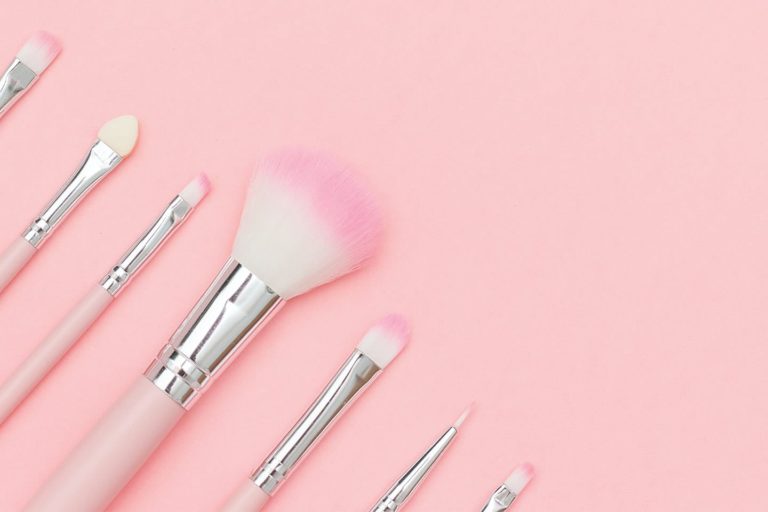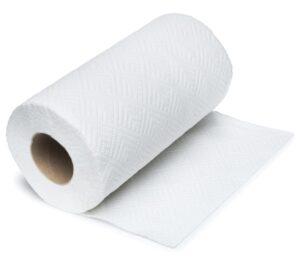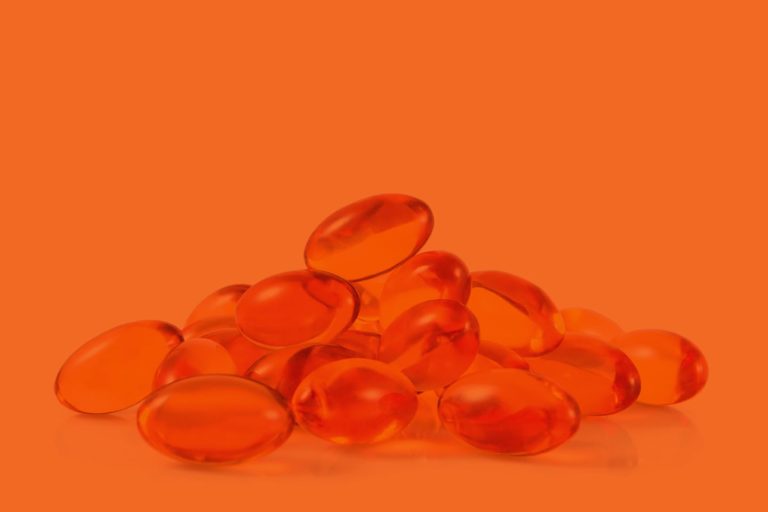For Her
A Quick Guide to Cleaning Makeup Brushes
When’s the last time you gave your makeup brush a second thought?
Turns out, dirty makeup brushes are a breeding ground for bacteria and can clog your pores, leading to dull and broken out skin. Not to mention, clean makeup brushes simply apply makeup better – and they last longer! To optimize your beauty routine, consider these cleaning tips and tricks.
- Brushes should be wiped down and sprayed with disinfectant weekly and deep cleaned or washed monthly.
- To deep clean brushes, mix water with a few drops of unscented soap. Alternatively, use soap made specifically for cleaning makeup brushes.
- Lay brushes down flat to dry. Excess water near the base of the brush can damage and loosen the glue that holds the bristles in place.
- Go the extra mile with your cleanliness routine by purchasing a disinfecting mist to spray on the bristles after each use.
- As soon as your brushes begin to shed, smell, or hold on to makeup regardless of deep cleaning, it’s time to replace them.

- In order to avoid needing to buy an entire new brush set at one time, experts suggest buying a few new brushes every three months.
Coping with Early Menopause
For women going through menopause, it can be a daunting time – especially when it happens sooner than expected. Fortunately, with knowledge of the various treatments available, it’s possible to regain control.
For those experiencing premature menopause (ages 35-40) or early menopause (ages 40-45), certain symptoms can clue you in on what is happening. These include irregular periods or the absence of periods, hot flashes, night sweats, vaginal dryness, moodiness, mental fogginess, and a decreased sex drive.
Early or premature menopause can happen for a variety of reasons, but there are several ways to get your body back on track. Many women turn to hormone-replacement therapy to replace the estrogen and progesterone the body can no longer make on its own. These supplements are typically taken until the age of 50 and can help manage symptoms, prevent bone loss, and support heart health.
In addition to hormone supplements, some women choose to take calcium and vitamin D in order to help lower their risk of osteoporosis if they aren’t getting enough in their regular diet.
As a result of premature or early menopause, women who still wish to become pregnant are likely to experience issues, but a doctor or reproduction specialist can offer additional options.
For Moms
Creating a Healthier Halloween
With Halloween right around the corner, many moms may be wondering how to strike the perfect balance of letting their children enjoy the holiday without overloading on sugary treats. Enjoy these sweet tips for making the most of this ghoulish time of year:
- Wait until Halloween day to buy goodies. Waiting to purchase treats until right before the holiday keeps your family from indulging all month long.
- Purchase miniature treats. Fun and miniature sizes are definitely the way to go, but they can add up quickly. Set a daily limit, and stay cognizant of how much your family is consuming.
- Give your children options. Considering a candy exchange where kids can trade tasty treats for toys may be the perfect way to decrease sugar intake.
- Prepare a healthy dinner before trick-or-treating. Making sure your children have a full stomach by the time they hit the sidewalk on Halloween will leave less room for sugary sweets.

5. Don’t be afraid to be that house. There’s no shame in being the house on the block that isn’t giving out candy. Instead, offer children sidewalk chalk, bouncy balls, glow sticks, and the like.
When to Keep Your Sick Child Home from School
Keeping a child home from school because of an illness can be a tough call to make. Take the guesswork out of the equation with these simple guidelines. Keep your child home from school if they are showing any of the following symptoms:
- Fever (within the last 24 hours)
- Nausea and vomiting
- Diarrhea
- Trouble breathing
- Lethargy
- No appetite
- Any contagious infections such as strep throat, chickenpox, rubella, whooping cough, mumps, measles, pink eye, flu, and hepatitis A
Here’s some good news – many children can still enjoy the school day with a simple stuffy nose or cough. However, you should always contact your child’s daycare or school to determine what their rules are for when a child is sick.
For New Moms
Eating for Two
Figuring out exactly how much to eat when you are pregnant can be tricky, but learning how to eat for two doesn’t have to be confusing.
If your weight was within an average range and you were moderately active before becoming pregnant, your daily caloric intake should have been around 2,000 calories per day. Now that you’re expecting, that may need some adjusting.
FIRST TRIMESTER – During the first trimester, it is not necessary to consume any more than you normally would. Instead focus on developing healthy nutrition habits, like eating foods that will keep your energy up and support the baby’s development.
SECOND TRIMESTER – By the time you reach your second trimester, you should begin to increase your daily calorie intake. Aim to consume an extra 300 to 350 calories per day.
THIRD TRIMESTER – Congratulations, your baby is almost here! By the time you are in your third trimester, you will need roughly 500 additional calories per day. If you are carrying multiples, you’ll likely need to consume an additional 300 calories per day for each baby.

Dreams During Pregnancy?
While most of us dream at some point in our lives, it is a long-held belief that pregnant women seem to dream more often and more vividly. Why might that be the case?
One reason pregnant women seem to dream more is likely due to the fact that they also sleep more. Plus, increased hormone production during pregnancy is thought to increase the frequency and intensity of dreams.
In addition, women who are pregnant are more likely to experience disrupted sleep. Whether your sleep schedule has changed, discomfort is keeping you up, or you simply need to get up more frequently for trips to the bathroom, it’s likely that your REM (Rapid Eye Movement) sleep is being impacted.
Dreams occur during REM sleep, and when REM sleep is suddenly disrupted, you are more likely to recall your dream. And that improved dream recall also supports the belief that pregnant women dream more frequently.
For the Home
Guidelines for Cleaning Up Spills
When it comes to protecting your home and your family, cleaning up spills shortly after they occur is important. In order to minimize your reaction time and get back to the things that matter most, keep these tips in mind.
Have the appropriate materials on hand.
Different spills require different materials for cleanup. Supplies you should always have readily available include: absorbent materials like paper towels and rags, detergent solutions, a mop, a vacuum, and a squeegee.

Identify the substance.
Is the spilled substance water or oil? It may even be something more hazardous, like mercury or chemicals. The toxicity level and whether or not the spilled substance is flammable will determine how you clean it up.
Stop and contain the spill.
Once you can safely do so, stop the spill at its source. Limit spreading by using the appropriate materials to absorb some of the substance or try to dam or redirect the flow.
Protect yourself and others..
Avoid slips and falls by wearing appropriate footwear as you clean. Communicate the spill to others around you so that they are aware of the potential risk.
Keeping Drains Unclogged: It’s Not a Pipe Dream
From the kitchen to the bathroom, clogged drains can be a major pain. While many people wait until their drain is completely clogged before trying to alleviate backup, taking care of the issue sooner rather than later can prevent a plumbing emergency that warrants professional help.
The biggest telltale sign that you have a clogged drain is that water begins to back up and pool around the drain. Other signs include water draining slowly, gurgling noises, rotting smells, or pools of water accumulating on the floor near a bathtub or sink.
While store-bought chemical drain cleaners can help clear clogged drains, many are highly corrosive and could do more damage than good to your pipes. To unclog a drain, experts suggest using a cup or flange plunger or using home remedies such as vinegar and baking soda to clear away buildup.
Lastly, in order to keep your drains in top working condition, use your garbage disposal sparingly, use a drain screen in bathrooms to catch hair, and never pour grease down your pipes.
For the Whole Family
Sleep on It: Getting a Good Night’s Rest When You’re Sick
As if being sick isn’t already bad enough, illnesses such as a cold or flu make it difficult to get a good night’s sleep and can compound the problem. Whether caring for yourself, your significant other, or your children, there are things that can help your loved ones catch up on rest without turning to pharmaceuticals.
Prop yourself up.
Especially for sinus-related sicknesses, propping yourself up can alleviate some symptoms caused by postnasal drip, such as a cough and sore throat.
Try a humidifier.
Utilizing a humidifier or vaporizer can add moisture back to airways that get dried out from an illness. Just be sure to regularly clean your products to keep them free from mold and bacteria.
Heat things up.

Eating or drinking something hot, such as soup or tea, is another way to add some moisture to your airways and release mucus. Inhaling steam through this method or via a hot bath or shower can help clear out your nasal passages.
Sleep solo.
Sleeping alone doesn’t just keep from spreading the sickness to a loved one; it also allows for you to cough, blow your nose, and get out of bed at your leisure without waking anyone up.
For Older Adults
Training Your Body to Deal with Urinary Incontinence
While urinary incontinence, also known as bladder leaks, can occur for a variety of reasons, there are small daily changes you can make to help lessen the symptoms without turning to medications, surgeries, or procedures.
- Bladder Training – Keep a journal of when and how often you use the restroom. This will allow you to set a schedule where you go longer between bathroom visits, which will train your bladder to hold more over time. You can also try urgency suppression – a method of distracting your mind in order to keep from making a trip to the bathroom.
- Kegel Exercises – Try tightening your Kegel muscles and then relaxing them. Repeating this exercise for several minutes each day is a simple way to strengthen the muscles that control urine flow.
- Double Voiding – After urinating, wait several minutes before trying to go again. Learning how to completely empty your bladder will help prevent overflow incontinence.

4. Lifestyle Changes – Losing weight, quitting smoking, limiting liquid consumption, and cutting back on alcohol, caffeine, and acidic foods are all ways to help decrease the likelihood for urinary incontinence.
Bruising with Age
As we age, our skin retains less moisture, making it harder for our bodies to heal themselves. As this happens, skin is more likely to bruise, and certain conditions and medications can amplify bruising. Read on to learn what you can do to help prevent and treat bruising.
Prevention
- Keep walkways in your home clear to avoid bumps or falls, and make sure they have adequate lighting.
- Use whatever support is needed, whether that means asking a loved one to assist you or talking to your doctor about using a cane or walker.
- Get your hearing and vision tested. Even small imbalances can cause you to fall more easily.
Treatment
- Elevate the bruised area within the first 24 hours to keep swelling and inflammation down.
- To speed up the healing process of a bruise, apply a cold compress for no more than 20 minutes at a time.
- Know what is normal so that you know when to contact a doctor. In the elderly, bruising can take weeks and even months to go away, and bruises typically turn a myriad of colors before gradually disappearing.
For Him
Benefits of Fish Oil Supplements
Fish oil supplements are one of the most commonly consumed dietary supplements, and for good reason. These supplements are rich in omega-3 fatty acids, which are good for your health and can aid in everything from lowering blood pressure to reducing the risk of heart disease. While no substitute for consuming fresh fish that is rich in omega-3 fats, such as salmon, mackerel, or sardines, fish oil supplements can show positive effects for those whose diets don’t contain fish.
Perhaps one of the greatest benefits of omega-3 fatty acids found in fish and fish oil supplements is believed to be its ability to significantly reduce blood triglyceride levels. In addition, it is also believed to reduce the likelihood of a heart attack or stroke and slow the development of plaque in your arteries.
According to the American Heart Association, three grams of fish oil daily is safe for most adults. While generally safe, too much fish oil can increase your risk of bleeding and might suppress your immune response, so be sure to consult a professional before upping the recommended dosage.

Compression Gear: Effective or Too Good to Be True?
From socks and sleeves to shirts and shorts, compression gear has become increasingly popular. Touted as an ergogenic aid, these garments are said to increase endurance and performance among athletes and novice exercisers alike. Research on the topic is minimal, however, and many experts believe the effects of compression gear are more psychological than physiological.
Here are some of the commonly held beliefs about compression garments:
- Compression gear is said to reduce muscle vibration, which suggests you can more easily control your body’s movements. Thus, your body ends up spending less energy compensating for micro-movements.
- Compression garments can allegedly increase your blood circulation by essentially guiding blood toward the heart and increasing the speed and volume at which it flows.
- Compression clothing can ostensibly heighten your receptive input, meaning you can better feel parts of your body when pressure is applied to them. In turn, this allows you more control over your movements.
While the benefits of compression clothing are agreed upon by many, few studies are able to corroborate its effects. In the end, experts say to give compression gear a try and stick with it if you feel it helps you perform better.
